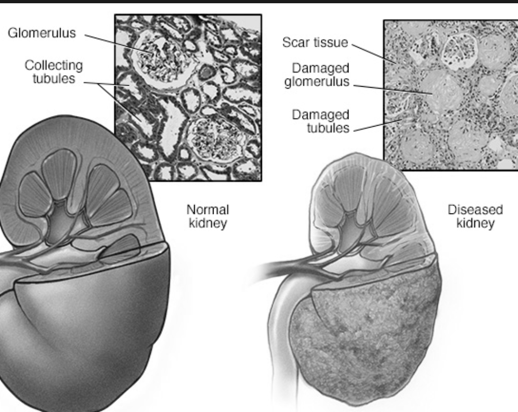According to the World Health Organization, approximately 10% of kidney transplants are from donors who were illegally paid to donate their organs. This raises ethical concerns for many people.
For some, the main question is, “How can we stop organ trafficking?” Others are asking, “How soon can we make it legal to pay organ donors, both living and deceased, to save the lives of 60,000+ patients waiting for transplants?”
Selling kidneys has become an issue because kidney transplantation is so remarkably successful. The five-year survival for recipients of kidneys from living donors is 90.5%. Recipients of kidneys from deceased donors do almost as well, with a five-year survival rate of 82.5%. Patients on dialysis have a much worse prognosis, with an average life expectancy only half that for transplant patients.
Kidneys are by far the most needed organs for transplants. In 2004, there were 88,165 patients on the waiting lists for all types of organ transplants, and 61,960 of these were waiting for kidneys. In the same year, there were only 16,002 kidneys transplanted in the United States, 58% from deceased donors and 42% from living donors. The number of people who need transplants has been steadily increasing, but the number of donations has remained fairly constant.
Many patients seek out kidney transplants in third world countries where they can buy kidneys more easily, but where the quality of medical care may be substandard. Published studies from transplants in India and Iraq show an increased incidence of viral infections such as hepatitis B, hepatitis C, and HIV from transplants. The donors in these situations may also be at more risk. In the United States, the mortality rate for living kidney donors is approximately 3 per 10,000. It may be much higher in poorer countries.
Kidney transplants actually save money, compared to dialysis. Researchers estimate that a transplant from a living paid donor could save $94,579 in health care costs. A transplant from a deceased donor should offer similar savings. Therefore, financial incentives for both living and deceased donors are being considered more carefully.
A completely different approach to the ethical problems of selling kidneys is to put more resources into prevention of kidney failure. Chronic kidney disease can be treated with diet and medication if it is detected early enough. However, all too often it is not detected until serious damage is done. The risk factors for chronic kidney disease are described in: https://www.empowher.com/news/herarticle/2009/09/02/top-ten-risk-factors-chronic-kidney-disease
by Linda Fugate, Ph.D.
References:
Berman E, Lipschutz MS, Bloom RD, Lipschutz JH, “The Bioethics and Utility of Selling Kidneys for Renal Transplantation”, Transplant Proc. 2008 June; 40(5):1264-1270.
http://www.undispatch.com/node/8839






Add a Comment1 Comments
Wow! I knew that there was a market for human trafficking of transplant organs but had no idea of the figures. Thanks for sharing!
September 28, 2009 - 12:51pmThis Comment